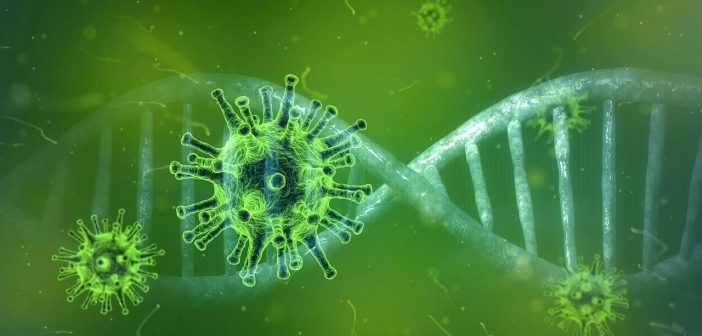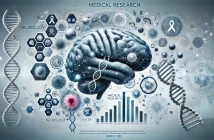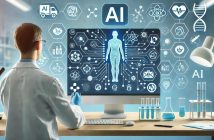Medical researcher Dr. Abdul Razzaque writes about the Coronavirus, advises on preventive measures and busts common myths surrounding the virus and how it is spread. Need to consult a Coronavirus expert? Find qualified experts on Kolabtree.
Human coronaviruses were first identified in the mid-1960s. Human coronaviruses are common throughout the world. Seven different coronaviruses, that scientists know of, can infect people and make them sick. Some human coronaviruses were identified many years ago and some have been identified recently. Human coronaviruses commonly cause mild to moderate illness in people worldwide.
Two newer human coronaviruses, MERS-CoV and SARS-CoV, have been known to frequently cause severe illness. Sometimes coronaviruses that infect animals can evolve and make people sick and become a new human coronavirus. Three recent examples of this are COVID-2019, SARS-CoV, and MERS-CoV.
How do they get their name?
Coronaviruses are named so due to the the crown-like spikes on their surface.
Species of Coronaviruses
- 229E (alpha coronavirus)
- NL63 (alpha coronavirus)
- OC43 (beta coronavirus)
- HKU1 (beta coronavirus)
First four species are common species of Human Coronaviruses. People around the world commonly get infected with human coronaviruses 229E, NL63, OC43, and HKU1.
- MERS-CoV (the beta coronavirus that causes Middle East Respiratory Syndrome, or MERS)
- SARS-CoV (the beta coronavirus that causes severe acute respiratory syndrome, or SARS)
- 2019 Novel Coronavirus (COVID-2019)
Two newer human coronaviruses, MERS-CoV and SARS-CoV, have been known to frequently cause severe illness.
Recent Outbreak of Human Coronavirus in Wuhan China
It is a novel Human coronavirus, that is to say, a member of the coronavirus family that has never been encountered before. Like other coronaviruses, it has come from animals. Many of those infected either worked or frequently shopped in the Huanan seafood wholesale market in the centre of the Chinese city, which also sold live and newly slaughtered animals. But still the origin of infection is unclear. As this virus is very new so we are getting new statements regularly.
Mode of Spread of Novel Coronavirus
Mode of spread can be animal to animal, animal to human and human to human. Currently infecting virus can be spread from animals to humans as well as from human to human. Early on, many of the patients in the outbreak in Wuhan, China reportedly had some link to a large seafood and animal market, suggesting animal-to-person spread. However, a growing number of patients reportedly have not had exposure to animal markets, suggesting person-to-person spread is occurring. At this time, it’s unclear how easily or sustainably this virus is spreading between people.
Spread to Other Countries
The virus has also been confirmed outside China, in the US, Thailand, South Korea, Taiwan , Iran, Japan and so on and till date it has spread to 72 different countries of world.
Signs and Symptoms of Human Coronavirus
The virus causes pneumonia. Those who have fallen ill are reported to suffer:
- Cough
- Fever
- breathing difficulties.
In severe cases there can be organ failure.
At What Point Should a Person with a Cough visit a Physician?
Unless you have recently travelled to China/other infected countries or been in contact with someone infected with the virus, then you should treat any cough or cold symptoms as normal. The NHS advises that there is generally no need to visit a doctor for a cough unless it is persistent or you are having other symptoms such as chest pain, difficulty breathing or you feel very unwell.
Why are antibiotics not working to treat Novel Coronavirus?
As this is a viral pneumonia type, antibiotics are of no use. The antiviral drugs we have against flu will not work. If people are admitted to hospital, they may get support for their lungs and other organs as well as fluids.
Clinical Specimen Type and CDC Guideline
To increase the likelihood of detecting infection, CDC recommends collection of three specimen types, lower respiratory, upper respiratory and serum specimens for testing. If possible, additional specimen types (e.g., stool, urine) should be collected and should be stored initially until decision is made by CDC whether additional specimen sources should be tested. However currently chest x-ray is also preferred as one of the emerging tool to diagnose.
Recovery from Human Coronavirus
Recovery will depend on the strength of their immune system. Many of those who have died are known to have been already in poor health.
Who Are at Risk?
People in poor health are at greatest risk, as is always the case with flu. A key concern is the range of severity of symptoms – some people appear to suffer only mild illness while others are becoming severely ill. This makes it more difficult to establish the true numbers infected and the extent of transmission between people. But the authorities will be keen to stop the spread and will be anxious that the virus could become more potent than it so far appears.
Healthcare workers could be at risk if they unexpectedly came across someone with respiratory symptoms who had travelled to an affected region. Generally, the coronavirus appears to be hitting older people hardest, with few cases in children.
Should We Panic?
People are getting anxious and depressed as the coronavirus spreads. Travel restrictions have been put in place throughout the world.
It’s perfectly normal to feel anxiety about this emerging health crisis. The coronavirus can be a deadly disease, but we also know that it’s most likely to be deadly in people who already have a weakened immune system.
There are number of ways to cop up the fear and anxiety of this virus.
- Don’t inflate the risk.
- Take normal and healthy precautions.
- Avoid overuse of media and don’t rely on unauthentic sources of information.
- Use your past coping skills to deal with similar type of anxiety.
Measures to Be Taken?
Infection control measures should be taken in order to reduce the chances of infection, such as:
- Air borne and contact precaution
- Use of gloves, eye shields and masks preferably N95 masks
- Hand hygiene
Addressing Coronavirus Myths (COVID-2019)
In this emergency crises people are getting more depressed with different myths about the spread of disease and how it can be treated.Following are few myths regarding recent outbreak of novel Coronavirus.
MYTH-1. Any courier or parcel from China leads to Coronavirus infection
No, not at all. It is safe to receive parcels. People receiving packages from China are not at risk of contracting the new coronavirus. From previous analysis, we know coronaviruses do not survive long on objects, such as letters or packages.
MYTH-2. Pets at home spread novel Coronavirus
At present, there is no evidence that companion animals/pets such as dogs or cats can be infected with the new coronavirus. However, it is always a good idea to wash your hands with soap and water after contact with pets. This protects you against various common bacteria such as E. coli and Salmonella that can pass between pets and humans.
MYTH-3. Pneumonia vaccine is helpful to protect against novel Coronavirus
No. Vaccines against pneumonia, such as pneumococcal vaccine and Haemophilus influenza type B (Hib) vaccine, do not provide protection against the new coronavirus, because these vaccines are affective against only bacterial infections. The virus is so new and different that it needs its own vaccine. Researchers are trying to develop a vaccine against 2019-nCoV.
MYTH-4. Regular rinsing of nose prevent infection with the new coronavirus
No. There is no evidence that regularly rinsing the nose with saline has protected people from infection with the new coronavirus. There is some limited evidence that regularly rinsing nose with saline can help people recover more quickly from the common cold. However, regularly rinsing the nose has not been shown to prevent respiratory infections.
MYTH-5. Regular gargling with mouthwash protect from infection with the new coronavirus
No. There is no evidence that using mouthwash will protect you from infection with the new coronavirus. Some brands or mouthwash can eliminate certain microbes for a few minutes in the saliva in your mouth. However, this does not mean they protect you from 2019-nCoV infection.
MYTH-6. Eating garlic help prevent infection with the new coronavirus
Garlic is a healthy food that may have some antimicrobial properties. However, there is no evidence from the current outbreak that eating garlic has protected people from the new coronavirus.
MYTH-7. Putting sesame oil on the body blocks the new coronavirus from entering the body
No. Sesame oil does not kill the new coronavirus.
MYTH-8. Some chemicals on skin surface kill novel coronavirus
There are some chemical disinfectants that can kill the 2019-nCoV on surfaces of home. These include bleach/chlorine-based disinfectants, either solvents, 75% ethanol, peracetic acid and chloroform. However, they have little or no impact on the virus if you put them on the skin or under your nose. It can even be dangerous to put these chemicals on your skin.
MYTH-9. Older people are more susceptible
People of all ages can be infected by the new coronavirus (2019-nCoV). Older people, and people with pre-existing medical conditions (such as asthma, diabetes, heart disease) appear to be more vulnerable to becoming severely ill with the virus. WHO advises people of all ages to take steps to protect themselves from the virus, for example by following good hand hygiene and good respiratory hygiene.
MYTH-10. Antibiotics are effective in preventing and treating the new coronavirus
No, antibiotics work against viruses, but only bacteria. The new coronavirus (2019-nCoV) is a virus and, therefore, antibiotics should not be used as a means of prevention or treatment. However, if you are hospitalized for the 2019-nCoV, you may receive antibiotics because bacterial co-infection is possible.
MYTH-11. Treatment of Novel Coronavirus is available
To date, there is no specific medicine recommended to prevent or treat the new coronavirus (2019-nCoV). However, those infected with the virus should receive appropriate care to relieve and treat symptoms, and those with severe illness should receive optimized supportive care. Some specific treatments are under investigation and will be tested through clinical trials.
Need to interview a scientist about Coronavirus or need help to further your research? Consult a qualified Coronavirus researcher on Kolabtree today.
Disclaimer: This article is not intended to be a substitute for professional medical advice, diagnosis, or treatment. Always seek the advice of your physician or other qualified health provider with any questions you may have regarding a medical condition.








1 Comment
Its fantastic info I have got from this article. Good work Dr.